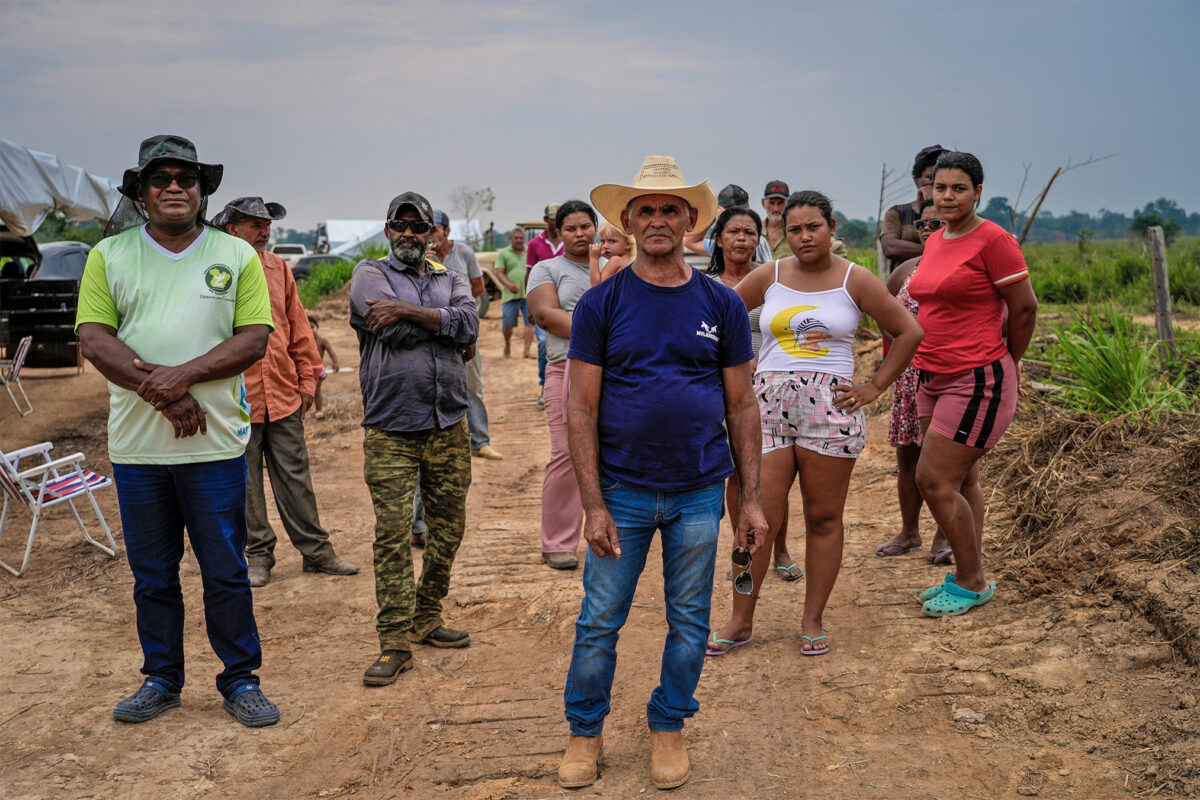NOVO PROGRESSO, Brazil — Julia had been sleeping on the ground under a canvas tent, in an encampment surrounded by a dozen armed men. Still, the 26-year-old mother felt it was worth it. “It was worse over there,” she told Mongabay, referring to her hometown in Maranhão state, while looking after her 2-year-old daughter. Julia had sold her few belongings, including some chickens, to pay for the 2,000-kilometer (1,200-mile) trip to Novo Progresso, in Pará state. It was a decision made on the spot after receiving a message on WhatsApp. “A friend said that Incra [Brazil’s land reform agency] was going to distribute land here,” she said. The dream of owning a piece of land also brought José, 54, to the settlement set up 12 km (7.5 mi) off the BR-163 highway, which connects Brazil’s bread-basket state of Mato Grosso to ports on the Tapajós River in Pará. He left his family in Porto Velho, Rondônia state, and traveled three days by motorcycle to join the movement. “We’ve always worked on other people’s land, and half of what we harvest we have to give to others,” José said, adding his family has been dreaming of their own land since the 1980s, when they migrated from Minas Gerais state, some 2,000 km away in southeastern Brazil, here to the Amazon. “It would be a chance to provide comfort for my family.” Julia and José, who asked that their real names not be used for safety reasons, are among the ripples in…This article was originally published on Mongabay
From Conservation news via this RSS feed


